Our All Complete Projects

Final Evaluation of “Kalyana: Ensure access to lifesaving integrated and sustainable services to the Rohingya population and host communities in Cox's Bazar District, Bangladesh” Project
- Final Evaluation of “Kalyana: Ensure access to lifesaving integrated and sustainable services to the Rohingya population and host communities in Cox's Bazar District, Bangladesh” Project

Gender Equality and Inclusion – Self-Assessment (GEISA)
- Despite growing global commitments to gender equality, many organizations struggle to translate gender and inclusion principles into everyday practice. Plan International Bangladesh initiated the Gender Equality and Inclusion– Self-Assessment (GEISA) to reflect on its internal systems, policies, and programming through a gender lens and assess its commitment to building inclusive and equitable workplaces and programs.
Gender Equality and Inclusion – Self-Assessment (GEISA)
Click to View Details

Conducting studies and benchmark surveys to assess the cost of living for farmers and their families
- Conducting studies and benchmark surveys to assess the cost of living for farmers and their families

Endline study for the “Samsung C&T 12th Village Project”
- Endline study for the “Samsung C&T 12th Village Project”
Endline study for the “Samsung C&T 12th Village Project”
Click to View Details

End-line evaluation of “Improving Access to Rights-based Reproductive Health Services in Cox's Bazar
- End-line evaluation of the project “Improving Access to Rights-based Reproductive Health Services in Cox's Bazar"

Endline Assessment of Oporajita Project
- CRD was assigned to conduct the endline assessment of Oporajita project titled “Oporajita- Collective Impact on Future of Work in Bangladesh. The main objective of the endline assessment is to evaluate the project's achievement of key indicators and outputs as outlined in the monitoring, evaluation, and learning (MEL) plan.
Endline Assessment of Oporajita Project
Click to View Details

Baseline study of Dohar CDP (Community Development Project) of GNB
- CRD was assigned to conduct a comprehensive baseline study of the Dohar CDP (Community Development Project). The CDP is a unique approach of Good Neighbors Bangladesh (GNB) to implement development project at local level.
Baseline study of Dohar CDP (Community Development Project) of GNB
Click to View Details

Baseline study of Pirganj CDP (Community Development Project) of GNB
- CRD was assigned to conduct a comprehensive baseline study of Pirganj CDP (Community Development Project) by Good Neighbors Bangladesh (GNB). The aimed of this study was to assess the current situation and establish benchmark data to measure progress and evaluate outcomes at the end of the project period.
Baseline study of Pirganj CDP (Community Development Project) of GNB
Click to View Details

Mid-Term Evaluation of Kurigram CDP (Community Development Project) of GNB
- CRD was assigned to conduct the Mid-Term evaluation of the Kurigram CDP (Community Development Project) of Good Neighbors Bangladesh (GNB). The aim of the study was to evaluate the project's achievements, challenges, lessons learned and identify the deviation ongoing targeted activities as well as to provide for further improvements.
Mid-Term Evaluation of Kurigram CDP (Community Development Project) of GNB
Click to View Details

End line study of AGNEE (Awareness, Actions and Advocacy for Gender and Safe Spaces for Women and Girls) Project
- BRAC (4)

End Program Evalaution of Nazirpur Area Program (AP)
- WVB (8)
End Program Evalaution of Nazirpur Area Program (AP)
Click to View Details

A study on positive gender narratives and portrayal of girls and women in youth and media
- CRD was assigned to conduct the study "analyzing the youth and media related acts, laws and policies in Bangladesh". This study aimed to identify gaps that perpetuate gender stereotypes and promote harmful discriminatory social norms.

Scoping Study on Green Livelihood Opportunities for Women in Khulna (Bangladesh)
- BRAC 3
Scoping Study on Green Livelihood Opportunities for Women in Khulna (Bangladesh)
Click to View Details

Impact Evaluation of the SSBC Project, 2024
- WVB 7
Impact Evaluation of the SSBC Project, 2024
Click to View Details

End-line study of ‘Uddokta – Empowering Entrepreneurs (Phase II)’ Project
- End-line study of ‘Uddokta – Empowering Entrepreneurs (Phase II)’ Project
End-line study of ‘Uddokta – Empowering Entrepreneurs (Phase II)’ Project
Click to View Details

Assessment on Responsible Business Conduct (RBC)
- RBC will support clean cook stove entrepreneurs to do responsible business!
Assessment on Responsible Business Conduct (RBC)
Click to View Details

Assessing the types and level of existing conflicts that could mediate between and within the FDMN camps and adjacent host communities (in Teknaf)
- Research & Evaluation

Baseline Study of Samsung C&T-12th Village Project – Good Neighbors Bangladesh
- Baseline Study of Samsung C&T-12th Village Project – Good Neighbors Bangladesh
Baseline Study of Samsung C&T-12th Village Project – Good Neighbors Bangladesh
Click to View Details

Final Evaluation of ALERT Project
- Final Evaluation of ALERT Project
Final Evaluation of ALERT Project
Click to View Details

Baseline Survey of Ain Shohayota Project
Baseline Survey of Ain Shohayota Project
Click to View Details

Baseline Study of “Uddokta – Empowering Entrepreneurs” Project (Phase II)
- “Uddokta – Empowering Entrepreneurs" project is funded by Chevron and implemented by iDE, under the umbrella of Chevron’s Bangladesh Partnership Initiative (BPI).
Baseline Study of “Uddokta – Empowering Entrepreneurs” Project (Phase II)
Click to View Details

Endline study of “Composite Actions for Climate Migrants in Urban Slums (CACMUS)” projects
- WaterAid Bangladesh implemented the “Composite Actions for Climate Migrants in Urban Slums (CACMUS)” project in Rajshahi.
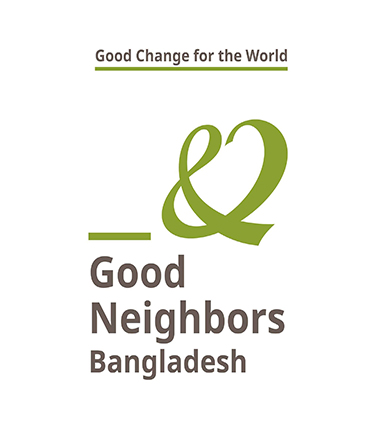
End Line Evaluation of Community Development Projects, Good Neighbors Bangladesh
- Good Neighbors Bangladesh (GNB) began its operations to improve the lives of communities, especially registered sponsored children, in 1996. GNB has been implementing its Community Development Projects (CDP) in different areas including Birganj & Bochaganj (Dinajpur) and Pirganj (Thakurgaon).
End Line Evaluation of Community Development Projects, Good Neighbors Bangladesh
Click to View Details
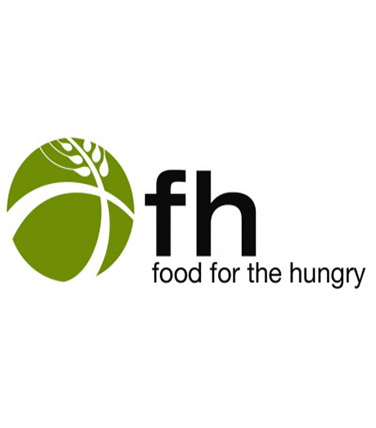
Assessment on Gender Analysis for Food For The Hungry Bangladesh
- Food for the Hungry (FH) aims to end human poverty by fostering relationships, transforming communities, and nurturing children.
Assessment on Gender Analysis for Food For The Hungry Bangladesh
Click to View Details

Endline Survey for “Enhancement of Protection Mechanism and Community Resilience Against Gender-based Violence (GBV) at Refugee Camp and Host Community in Cox’s Bazar, Bangladesh”
- World Vision Bangladesh (WVB) is among the organizations that have undertaken initiatives to strengthen the capacity of the refugee communities in addressing gender-based violence (GBV). Prior to this undertaking, WVB formulated a project aimed at delivering GBV support services in Camp 19 and the neighboring host community in Cox's Bazar with the objective of mitigating GBV risks faced by women and adolescent girls.
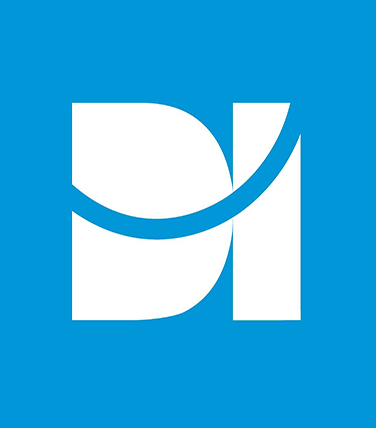
Conducting Maturity Assessment of Peace Facilitator Groups (PFGs)
- Democracy International (DI) has been implementing an eight-year long program titled “Strengthening Political Landscape” (SPL).
Conducting Maturity Assessment of Peace Facilitator Groups (PFGs)
Click to View Details

Terminal Evaluation of ABADEI Programme, UNDP Afghanistan
- In partnership with AERC Afghan Consulting, CRD is leading the terminal evaluation of ABDEI Project which is being implemented in 8 regions.
Terminal Evaluation of ABADEI Programme, UNDP Afghanistan
Click to View Details

SenseMaker® Study for Mapping Community Resilience, Essential Services, Socio-Economic and Social-Cohesion , UNDP Afghanistan
- SenseMaker® Study for Mapping Community Resilience, Essential Services, Socio-Economic and Social-Cohesion. In partnership with AERC Afghan Consulting, CRD is leading the study which is being executed in 8 regions of Afghanistan.

Impact Assessment of BMMDP
- Swisscontact, in partnership with various market actors, is implementing the BMMDP in Bangladesh to develop a micro insurance market for smallholder farmers. CRD has been appointed to conduct independent impact assessments on each program component quarterly.
Impact Assessment of BMMDP
Click to View Details

Community Scorecard of the Marginalized Groups in Bangladesh: Citizen's Assessment of District Level Social Safety Net Programs (SSNPs), Health and Education-related Services
- A training session was held at NGO Forum For Public Health on March 12, 2023, for data collection on evaluating Social Safety Net Programs, health, and education services in all 64 districts of Bangladesh. CRD received a grant from BRAC, with Mokhlesur Rahman, PhD leading a team of 18 researchers.

Baseline Study of Project for Enhancement of Protection Mechanism and Community Resilience Against Gender-based Violence (GBV) at Refugee Camp and Host Community in Cox’s Bazar, Bangladesh
- One million Rohingya refugees in Cox's Bazar face GBV risks. WVB's JP5 project aims to address the insufficient support, and a baseline study led by Dr. Rahman will assess knowledge and practices regarding GBV.

Final evaluation of “UDDOKTA - empowering entrepreneurs”
- CRD will conduct the final evaluation of iDE's UDDOKTA project funded by Chevron. The project aimed to empower entrepreneurs and improve rural livelihoods through inclusive market systems in Sylhet division, Bangladesh. Mokhlesur Rahman, PhD will lead the evaluation.
Final evaluation of “UDDOKTA - empowering entrepreneurs”
Click to View Details
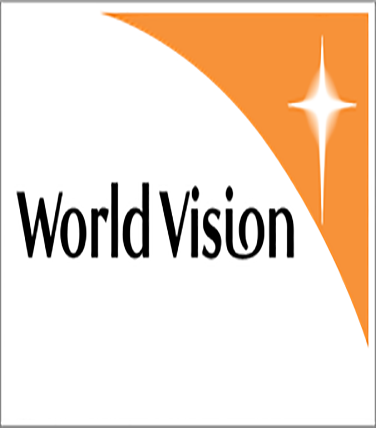
End Program Evaluation- Laksam Area Program (AP)
- The Laksam AP emphasizes community involvement and sponsorship through its Community Engagement and Sponsorship Plan (CESP). Collaboration with various stakeholders, including local communities and governmental bodies, is a crucial strategy to achieve efficient and long-lasting results.
End Program Evaluation- Laksam Area Program (AP)
Click to View Details
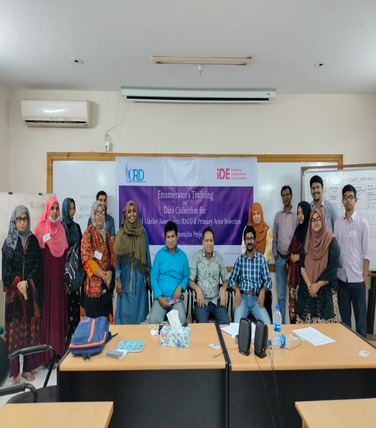
Baseline Study of Oporajita Project
- Oporajita is a 24-month project is being implemented by iDE to equip women garment workers in Bangladesh for a future defined by automation and digitalization. Funded by the H&M Foundation and Sweden, the project aims to holistically address challenges to women’s future employment opportunities and livelihoods in the ready-made garment (RMG) industry, which is facing uncertainty due to the loss of preferential trading access and shifts in production patterns causing the COVID-19 pandemic.
Baseline Study of Oporajita Project
Click to View Details

Multi-Sector Needs Assessment (MSNA)
- CRD has been appointed by World Vision Bangladesh (WVB)-Bangladesh Rohingya Crisis Response office to carry out Multi-Sector Needs Assessment (MSNA). The sectors include FSLR, Agriculture, Education in Emergency, Protection, GBV, Skill Development, Health, Nutrition, WaSH & Shelter. The assessment is being carried out employing a mixed method approach. A group MEAL professional from different partner organizations of the consortium to lead the field research both in Camps and Host Communities.
Multi-Sector Needs Assessment (MSNA)
Click to View Details

Final Evaluation of UDDOKTA Project
- Uddokta - empowering entrepreneurs - is a three-year (2020-2022) project co-funded by Chevron and the Swiss Agency for Development and Cooperation (SDC) and implemented by iDE. Under Chevron’s Bangladesh Partnership Initiative (BPI) and SDC’s COVID-19 Relief Emergency Grant, Uddokta seeks to improve income and livelihoods, and promote inclusive and non-discriminative society and employment opportunities of the poor and disadvantaged people through enterprise development and strengthening market systems in the Sylhet Division (Northeast of Bangladesh).
Final Evaluation of UDDOKTA Project
Click to View Details

End-line Evaluation for "Bangladesh Sirajganj Community Based Nutrition Project for Children"
- Nutrition is one of the foundations of health and development, and specifically in Bangladesh, malnutrition is one of the major causes of childhood illness and mortality (World Bank (WB), 2006). Twenty Three percent (23%) of children under-five are considered underweight (Bangladesh Bureau of Statistics (BBS) and UNICEF Bangladesh, 2019). Children are the building blocks of a country but they are at high nutritional risk. If malnutrition rates were reduced significantly, the returns on improved health, well-being, and productivity would be significant, and there would be a concurrent substantial reduction in the child mortality rate.
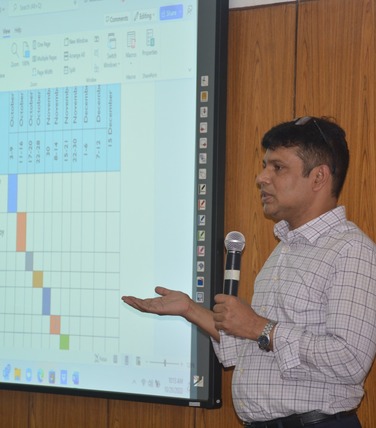
Needs Assessment of SOS Children’s Villages Bangladesh
- Nine out of 10 children in Bangladesh below the age of 14 (accounting for 45 million boys and girls) are subjected to violent disciplining in their homes from caregivers, including their parents and teachers (UNICEF, 2020). Violent disciplining, sexual abuse, child labour, lack of parental care, school dropout child marriage and psychological punishment remain widespread in Bangladesh, putting millions of children at risk of harm every day.
Needs Assessment of SOS Children’s Villages Bangladesh
Click to View Details

End-line Evaluation of the project Enhancement of protection mechanism and community resilience against Gender-based Violence (GBV) at refugee camp and host community
- World Vision Bangladesh (WVB) implemented projects for refugees staying at the camps to enhance the communal ability to prevent and respond to gender-based violence. Before this mission, WVB designed this project to provide GBV support services in Camp19 and the associated host community of Cox’s Bazar to reduce GBV risks to women and adolescent girls. The implementation of this project has escalated community GBV prevention and response and improved access to various supports in the refugee camp and host community.

Baseline Study of Protection and Education in Emergencies for Rohingya and host community children and adolescent girls and boys in Cox’s Bazar
- Educo Bangladesh has been awarded a grant from Spanish development corporation (AECID) for implementing a project titled “Protection and Education in Emergencies for Rohingya and host community children and adolescent girls and boys in Cox’s Bazar”. CRD has been leading the baseline study. The objective of the study is to ensure gender-positive protection and quality education for children and adolescents facing life-threatening risks of abuse, neglect, exploitation, GBV and severe distress, in 3 Camps (8E,14&17) and associated host communities in Cox’s Bazar.

Impact Study on The role of men and boys of SHOUHARDO III in catalyzing Women Empowerment (WE) and reducing Gender-Based Violence (GBV)
- CARE Bangladesh, as award holder, has been working with 6 PNGOs and various technical partners to implement the SHOUHARDO III (2015-2020) award in 8 vulnerable districts (Char and Hoar) of the country. The SHOUARDO III program builds on the gains and lessons from its predecessors SHOUHARDO and SHOUHARDO II by maintaining a strong emphasis on improving food security and livelihoods, improving nutrition for the PEP, and promoting women’s empowerment at the community level. The objective of the study is to assess boys’ and men's perspectives and roles in promoting WE and reducing GBV in SHOUHARDO III program areas to inform the program design for future sustainability.

Evaluation of “Tackling Marginalization and Discrimination (TMD)” Programme
- CRD has been awarded by Manusher Jonno Foundation (MJF) to conduct evaluation of Tackling Marginalization Program (TMD) which is part of Excluded Peoples’ Rights (EPR) project. TMD programme has covered three specific types of marginalized and excluded group in 10 Districts by 12 partners. They are landless, fisher-folk, and Dalit. Twelve grassroots organizations in various parts of the country are supported through this program.
Evaluation of “Tackling Marginalization and Discrimination (TMD)” Programme
Click to View Details

Baseline Study of Protection and Education in Emergencies for Rohingya and host community children and adolescent girls and boys in Cox’s Bazar
- Educo Bangladesh, supported by AECID, is implementing a project to protect and educate Rohingya children in Cox's Bazar. A baseline study is being conducted by CRD to assess the needs and outcomes.

An Empirical Study on Gender Gap in Financial Inclusion in Bangladesh
- This research aimed to conduct a diagnostic analysis to identify gender gaps in financial inclusion in Bangladesh, which lags significantly behind that of men. This investment will engage a vibrant research team, dominated by female researchers, academics and financial experts.
An Empirical Study on Gender Gap in Financial Inclusion in Bangladesh
Click to View Details

Baseline study of GFFO Project
- CRD has been leading baseline study of the project “Improved access to health services and services to prevent and address gender-based violence, as well as emergency assistance for refugees and vulnerable people from communities in Cox’s Bazar Bangladesh”
Baseline study of GFFO Project
Click to View Details

Final Evaluation of KOICA GBV Project
- The purpose of the end line survey is to evaluate the sustainability, impact, effectiveness, efficiency, relevancy and achievements of the interventions of both communities in relation to the goal, outcomes, outputs, and targets.
Final Evaluation of KOICA GBV Project
Click to View Details

Conducting post intervention assessment of Building Resilience of Women Garment Factory Workers in Bangladesh Project
- The current COVID-19 pandemic being faced by the world and vulnerabilities in the current healthcare system of Bangladesh have left the country in a crisis.

Conducting costing of a study on processing and reprocessing gender indicators and statistics.
- Constitution of UN Women Bangladesh recognizes equal rights for women and men in the public sphere and there is a reasonably strong legal and policy framework guaranteeing women’s rights.

Development of Gender Responsive Adaptive Livelihood Planning Toolkit
- Bangladesh's vulnerable coastal population, particularly in the districts of Khulna and Satkhira, faces significant risks from climate change impacts such as soil and freshwater salinity, cyclones, floods, and droughts. The UNDP has initiated the Gender-responsive Coastal Adaptation (GCA) project to directly support over 245,000 people, including women and adolescent girls, by developing a gender-responsive adaptive livelihood planning toolkit through an external national consultant.
Development of Gender Responsive Adaptive Livelihood Planning Toolkit
Click to View Details

End-line Evaluation of Emergency Protection, Psycho-Social Support and Health services for vulnerable population in Cox’s Bazar district, Bangladesh, 2020-2021 Project
- During the August 2017 refugee influx, 860,000 Rohingya refugees, including 445,248 children, fled to Bangladesh and now live in 34 congested camps in the Ukhiya and Teknaf Upazilas of Cox's Bazar, Bangladesh. As a result, Rohingya refugees and host communities face overwhelming difficulty accessing basic needs, education and psychological distress particularly single women, households headed by persons with disability (PwD), pregnant and lactating women, elderly persons, and children.

Gender Assessment of Rohingya & Host community in Cox’s Bazar, Bangladesh
- Successive generations of Rohingya refugees have fled to Cox’s Bazar, with the latest influx at roughly 866,457 and with more still trickling in. The humanitarian gestures by more than o.44 million people of Cox’s Bazaar, especially from Ukhia & Teknaf, despite being on the wrong side of economic, socio-political paradigm, has been widely hailed all around the world.
Gender Assessment of Rohingya & Host community in Cox’s Bazar, Bangladesh
Click to View Details

Final Evaluation of Inclusive Community-based Disaster Risk Management (ICDRM) Project in Bangladesh & Philippines
- According to Economic and Social Comission for Asia and Pacific (ESCAP) report, disaster impacts on the social and productive sectors were nearly 43 percent and 38 percent in six countries in the South and South West Asia subregion (Bangladesh, India, Nepal, Pakistan, Bhutan, and Afghanistan, respectively).

Mapping out the operational capacity of local stakeholders in Bangladesh to manage displacement in humanitarian crises and improve the safety of women and girls during disasters”
- The mission of CAMP COORDINATION AND CAMP MANAGEMENT (CCCM), a Cluster Approach and mechanism adopted by the Inter-Agency Standing Committee in 2005 to improve the effectiveness of humanitarian response, aims to improve quality of life and dignity of disaster and conflict-induced displaced people with advocating durable solution.

Midterm Evaluation of ‘Resilient, Inclusive and Innovative Cities in Bangladesh (RIICB)’ Project
- Bangladesh’s urban population of 42 million is one of the largest in the world. Cities like Dhaka and Mymensingh are experiencing exceptional urban growth rates, coupled with rising inequality and poverty. Both cities struggle with inadequate infrastructure, limited social services (particularly health, sanitation and waste management) and rapid environmental degradation

Baseline study of “Flood Resilience Project”
- Concern Worldwide has been implementing a pre-event flood resilience project called “Flood Resilience Project” funded by the Zurich Foundation. This project is part of the Zurich Flood Resilience Programme which is being implemented by the Zurich Flood Resilience Alliance (ZFRA) partners in different flood vulnerable countries across the world.
Baseline study of “Flood Resilience Project”
Click to View Details

Conducting Needs Assessment for Designing Program on Disaster Risk Management in Cox's Bazar, UNDP
- Bangladesh is still in the Rohingya crisis. Since August 2017, a total of 745,000 Rohingya have fled the border from Myanmar to Cox’s Bazar and Chattogram hill Tracts due to the violence that was put upon them. They have joined the over 300,000 Rohingya who took refuge in Bangladesh earlier. The people of Bangladesh have offered them generous hospitality but the scale of the crisis has become so high that the country cannot be expected to single handily meet the needs of the Rohingya.

Multi-sectoral (WASH, FSL & DRR) Needs Assessment
- The main purpose of the assignment is to conduct a multi-sectoral needs assessment to determine gaps in WASH, FSL, and DRR services in slums and low-income settlements in Dhaka North City Corporation (DNCC) and Dhaka South City Corporation (DSCC), as well as urban and semi-urban areas in Cox’s Bazar.
Multi-sectoral (WASH, FSL & DRR) Needs Assessment
Click to View Details

M&E Framework of National Action Plan (NAP) on Antimicrobial Resistance Containment (ARC)
- Bangladesh has developed a National Action Plan (NAP) on Antimicrobial Resistance (AMR) with an associated roadmap. These need to be effectively implemented. Having a properly developed monitoring and evaluation (M&E) framework is critical to guide the appropriate implementation of the NAP/roadmap.

Gender Assessment of “Taking successful innovation to scale pathway for disability inclusive graduation out of poverty” Project
- Handicap International has been supporting people with disabilities in their respective project areas. This gender assessment's main purpose was to assess the status of gender inequality among HI beneficiaries and their families, identify barriers to gender mainstreaming. And finally, suggesting a more comprehensive gender mainstreaming approach for women’s economic empowerment within the project (Taking successful innovation to scale pathways for disability-inclusive graduation out of poverty project).

Mid-Term Evaluation of Growing Economic Opportunities for Sustainable Development (GEOP) Project
- The GEOP Project is a 3 years project is funded by European Union (EU) and being implemented by Christian Aid in partnership with the Ghanaian Institute of Welding (GIW), United Civil Society Organization for National Development (UCSOND), GRATIS Foundation, and the Ellembelle District Assembly.

Final Evaluation of CCSEC project
- Terre des Hommes Netherlands in collaboration with 3 implementing partners implemented the CCSEC project. It was a forty-two months consortium project awarded by the European Union & embarked on 1 January 2016. The project was taken to address some of the critical needs of the target populations children of sex workers and children living and working in street.
Final Evaluation of CCSEC project
Click to View Details
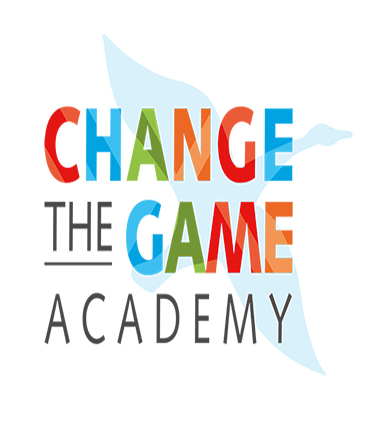
Final Evaluation of “Capacity Development Initiative of Change the Game Academy Programme 2016-2019”
- Civic Engagement Alliance (CEA) is a strategic partnership between The Netherlands Ministry of Foreign Affairs (MOFA) and the ICCO Consortium. It aims to contribute to reducing inequality and injustice in societies for fair economic, social and political development.

A Study on Review of Current Practices in Uses of Gender Responsive Guideline for DPP: Lessons Learned and Way Forward.
- National Resilience Program (NRP), a joint initiative by Government of Bangladesh, two development partners and three UN agencies with the priority concern of progress towards gender equality aims to sustain the resilience of human and economic development in Bangladesh through risk informed, disability inclusive and gender-responsive disaster management in the public and private sectors.

Final Evaluation of Ella Program (Ella pad and Ella Mask): Two Projects of Ella Alliance
- Ella programme is a non-profit social business initiative in Bangladesh. It aims to ensure consistent production and supply of hygiene-related products including sanitary pad and masks through empowering women. The pads are less costly & quality pads are made from scraps which is reusable and easily purchasable. On the other hand, since the COVID- 19 pandemic, Ella mask is in production which is a very low-cost mask. The masks are also made from garment/ textile scrap and have been standardized as per WHO and CDC, DGHS guidelines.
Final Evaluation of Ella Program (Ella pad and Ella Mask): Two Projects of Ella Alliance
Click to View Details

